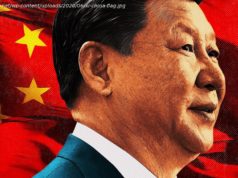Mainland scholars say Hong Kong is expected to do more than just enact Article 23 legislation
President Xi Jinping’s speech in Hong Kong on Saturday indicates that Beijing wants Hong Kong to provide more support for the country’s national security, which includes but is not limited to enacting national security legislation, mainland scholars say.
In rare criticism amid compliments about the city’s success, Xi explicitly spelled out his unhappiness with the city’s role in providing support for national security.
“Hong Kong needs to improve its systems to uphold national sovereignty, security and development interests, ” Xi said.
Later in the speech, he added that any attempt to endanger national sovereignty and security and challenge the power of the central government “is an act that crosses the red line, and is absolutely impermissible”.
Put national interests first, Xi Jinping tells Hong Kong’s new ruling team
Xi’s remarks suggested that Beijing wanted Hong Kong to significantly upgrade its institutions to support state security, said Tian Feilong, an associate law professor at Beihang University in Beijing.
“It’s a whole set of systems concerning sovereignty and national security, with Article 23 as the most important, ” said Tian, who is a member of the semi-official Chinese Association of Hong Kong and Macau Studies.
Tian said that beyond enacting the city’s own national security law, Beijing also expected the city to greatly beef up its law enforcement capabilities on national security and improve mutual judicial assistance with the mainland and legal cooperation on matters decided by Basic Law interpretations.
“It’s not his view, but a consensus among leaders on policies towards the city, ” Tian said.
His remarks were echoed by Chen Xinxin, a legal scholar with the Chinese Academy of Social Sciences, an official think tank under the central government.
Xi Jinping sends warning to advocates of Hong Kong independence but offers pan-democrats hope of better relations
Chen said that beside enacting national security laws, Beijing also expected the city’s civil servants to be more aware of national interests when they enforce laws. He added that the city still had no offices or personnel specifically tasked with upholding state security.
“Neither the central or the Hong Kong government has any office tasked with specific law enforcement on national security, ” Chen said. “Hong Kong police play no role. No personnel are tasked with it.”
Xi also called for more education for civil servants and youngsters on China’s constitution.
“The constitution is China’s fundamental law and is the origin of the SAR’s political system, ” he said.
“Hong Kong’s public believes the Basic Law is their constitution but has largely ignored the country’s constitution, ” Tian said. “Beijing is trying to integrate Hong Kong’s high degree of autonomy with its concept of ruling the country by law.”
The Chinese constitution differs greatly from Hong Kong’s Basic Law in its explicit legal support for the unchallenged rule of the Chinese Communist Party, despite clauses that uphold freedom of expression and assembly.
Beijing has adopted the slogan of “ruling the country by law” since 2014, which it says is different from the Western notion of “rule of law”.
President Xi Jinping’s four key points for moving forward under ‘one country, two systems’
In a rare use of Cantonese slang, Xi said: “After Suzhou, there’s no boat to take a ride on”. He was speaking about the city’s opportunities in the country’s “Belt and Road Initiative” for global trade and the Greater Bay Area development plan linking Hong Kong, Macau and nine Guangdong cities.
Tian said Xi may have been suggesting that the country could accomplish the projects without Hong Kong.
“It speaks of Beijing’s concern about Hong Kong’s over-politicised atmosphere on major economic projects like the Hong Kong-Zhuhai-Macau Bridge and the high-speed railway, ” he said. “China can wait but not forever.”






